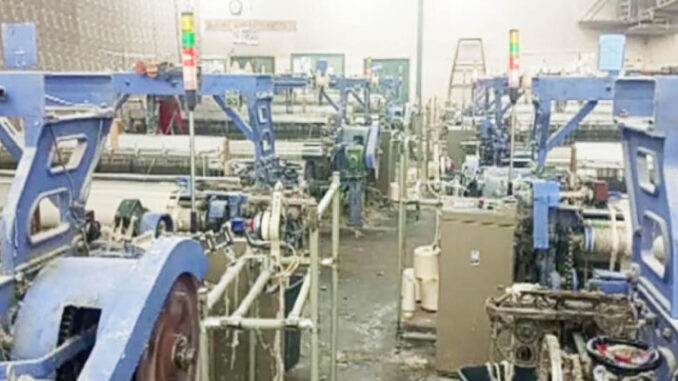
As harsh economic condition continues to take toll on Nigerians, only few textile industries remain afloat, but may be forced to fold up if nothing…
As harsh economic condition continues to take toll on Nigerians, only few textile industries remain afloat, but may be forced to fold up if nothing is done to salvage the sector from impending collapse.

Textile industries in Nigeria have been battling to survive the difficult business environment occasioned by fuel subsidy removal, rising inflation and the foreign exchange crisis, with a devastating effect on the value of the naira. The naira exchanged for N1,500 against the US dollar last at the parallel market.
The Funtua Textile Industry is one of the few firms struggling to withstand the pressures despite the fact that the chances of its surviving the economic turbulence in the country are minimal, with possibilities of things getting worse in the future unless drastic measures are put in place to arrest the situation.
A visit to the company’s plant at Dukke village, few kilometers away from the Funtua-Gusau road in Funtua Local Government Area of Katsina State, shows that though the industry is functioning fully, the fear of the unknown is glaringly showing on the faces of many of its workforce; and the reason is simple.
The chances of surviving the epileptic power supply, high cost of raw materials, occasioned by high inflation and rising exchange rate, as well as inconsistent government’s policies, seem to be pushing the Funtua Textile Industry to the brink.
The director, Human Resource/Personnel Department of the industry, İbrahim Mu’azu İsa, said the firm was facing multiple challenges, which he attributed to several factors that require holistic approach and commitment to address by the government and other stakeholders to achieve the desired objective.
“The challenges are just too numerous to mention. We want the government to reintroduce the cotton board to regulate the sector from its current situation, revive cotton production, which is comatose at the moment, then provide interest-free loans to textile industries to enable them operate optimally,” Muazu said.
According to him, when that is done, “The government needs to think towards improving the power sector, vis-a-vis reduce the price of LPFO, which is the fuel we use to power our generators for effective and efficient production.”

Be the first to comment